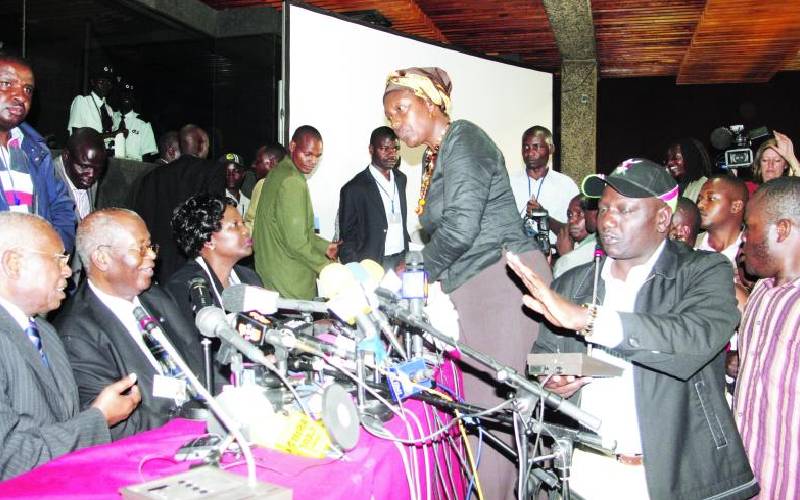
The sight of a pensive Mwai Kibaki taking oath of office on the dark evening of December 30, 2007, at a solemn ceremony in the company of few selected allies, is one of the images that will forever remain etched in the minds of those who witnessed the event beamed live by the national broadcaster from the lawns of State House, Nairobi.
The hurried ceremony – conducted a couple of minutes after the electoral body pronounced Kibaki as winner of the presidential poll – is one of the darkest spots on an otherwise illustrious political career of the former President. The declaration of Kibaki as winner and his subsequent swearing-in plunged the country into a post-election violence of enormous scale, claiming lives of over 1,000 Kenyans and leaving thousands of others maimed and homeless.